Butterfly Loves Flower (1978)
장르 : 드라마
상영시간 : 0분
연출 : Yuan Naichen, He Keren
시놉시스
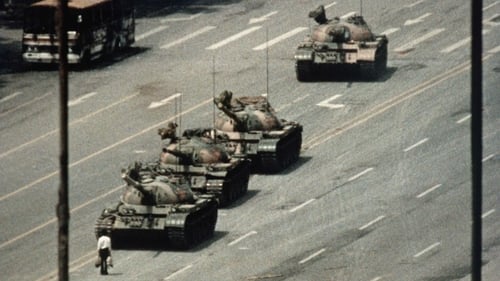
The Gate of Heavenly Peace is a feature-length documentary about the 1989 protest movement, reflecting the drama, tension, humor, absurdity, heroism, and many tragedies of the six weeks from April to June in 1989. The film reveals how the hard-liners within the government marginalized moderates among the protesters (including students, workers and intellectuals), while the actions of radical protesters undermined moderates in the government. Moderate voices were gradually cowed and then silenced by extremism and emotionalism on both sides.
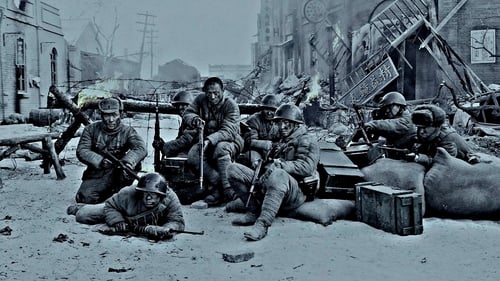
1948년, 중국 인민해방군과 국민당의 가장 치열했던 문하전투. 해방군 9중대 중대장 구지디와 47명의 대원들은 퇴각을 명하는 집결호가 들리기 전까지 적의 진격을 막으라는 상부의 명령 아래, 목숨을 걸고 진지를 지키지만 결국 구지디를 제외한 모든 대원들은 전멸한다. 구지디는 한국전까지 참전해 전쟁영웅이 되지만, 과거 집결호 나팔소리를 듣지 못해 부하들을 살리지 못한 것은 아닌지 홀로 살아남은 죄책감에 시달린다. 그러던 중 47명 부대원들의 시신이 발견되지 않아 실종자 처리가 되자, 구지디는 형제보다 진한 우애를 나눈 그들의 명예를 지켜주기 위해 시신을 찾아 나서고, 10년 만에 모두가 희생될 수 밖에 없었던 집결호와 관련된 숨겨진 진실을 듣게 되는데...

Documentary about the life of Sidney Rittenberg, an American who spent over 30 years in China and was an active participant in the Chinese communist revolution.

2차 세계대전 직후 중국, 일본이 패망했지만 전쟁 후 창궐하는 도적단들로 인해 백성들의 삶은 더욱 피폐해져 간다. 정부군은 전역으로 흩어져 도적단 소탕을 꾀하지만 수적 열세로 인해 상황은 점점 불리해지고, 203 소대장이 이끄는 부대는 그 수가 얼마인지 짐작조차 할 수 없는 어마어마한 규모의 좌산조 도적단과 맞닥뜨린다. 어떠한 지원도 받을 수 없고, 식량은 바닥났으며 마을 사람들의 목숨까지 위험에 처한 그 때! 203부대에 새롭게 합류한 양자영은 이제껏 한 번도 시도한 적 없는 위험천만하고 기발한 제안을 하는데... 최후의 선택만이 남은 순간!

This is the story of a Chinese hacking the American capitalist system, a Czech fight, chickens, doomsday.
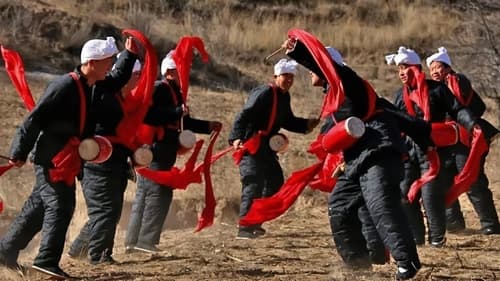
항일전이 한창이던 1939년, 중국의 한 가난한 산골에 구전민요를 수집하기 위하여 팔로군 병사가 찾아든다. 그는 그곳에 머무르면서 한 소녀에게 공산당의 거점인 옌안(延安: 연안)에서는 여성이 평등한 대접을 받는다고 말한다. 병사가 떠나고 얼마 후 돈에 팔려 마을의 노인에게 시집을 간 소녀는 힘겨운 결혼생활을 견디다 못해 옌안으로 도망가기 위해 강을 건넌다.

Pre-Cultural Revolution propaganda at its most lavish, this model opera depicts the history and evolution of the Communist Party of China under Mao Zedong from its founding in July 1921 to the establishment of "New China" in 1949. Detailed in the musical are several key events in CPC history such as the Northern Expedition, the KMT-led Shanghai massacre of 1927, the Nanchang Uprising and formation of the People's Liberation Army, the Long March and the founding of the PRC on October 1, 1949.

Xu Xin’s film “Dao Lu” (China 2012) offers an exclusive “in camera” encounter with Zheng Yan, an 83 year-old veteran of the Chinese Red Army, who calmly relates how he has navigated his country’s turbulent history over three-quarters of a century.Born to a wealthy family in a foreign concession, Yan joined the Chinese Communist Party (CCP) in 1941 because he sincerely believed in the socialist project, and in its immediate capacity to free China from the Japanese yoke and eradicate deep-rooted corruption.


As the Communist Party of China celebrates its 100th anniversary, this documentary looks back at the party’s history, from the 1920’s, to the Civil War, the Great Leap Forward, the Great Famine, the Cultural Revolution and the reforms by Mao Zedong and Deng Xiaoping. Did the Great Famine cost more than 15 million lives? How does the Cultural Revolution continue to shape Chinese politics today? What was capitalism like after Mao’s death? Through rare and never-before-seen historical footage, expert interviews and eyewitness accounts of the Great Famine, Tiananmen incident, and the Cultural Revolution, get to know how one party has so profoundly shaped China.

October 1st, 1957. Dusk descends on Tiananmen Square, Peking. Fireworks crackle light across the night sky, above a city alive with National Day festivities and celebrations. Two intrepid New Zealand film-makers - Rudall and Ramai Te Miha Hayward - are there, documenting the life and times of communist China.

The story of Li Dazhao's revolutionary deeds from 1912 to 1927, and the story of the benevolent and revolutionary pioneers who were led by him to devote themselves to the great cause of Marxism
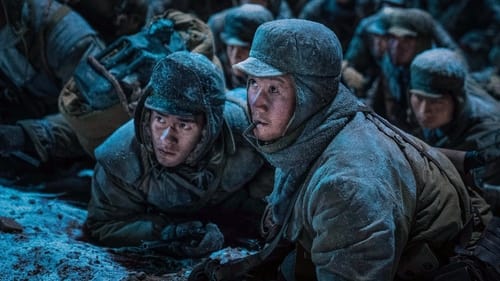
중국 공산당 중앙선전부의 후원을 받아 2021년 9월 30일에 개봉한 중국 애국주의 프로파간다 영화. 1950년 함경남도 장진호 부근에서 유엔군과 중공군 사이에 벌어진 전투를 중공군의 시각으로 그렸다.
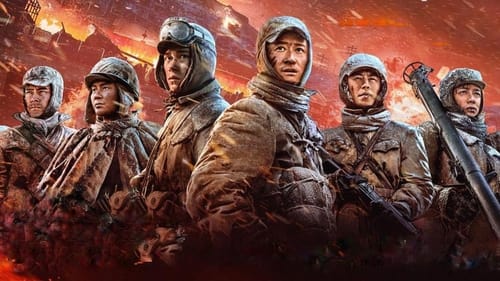
In the follow-up to "The Battle At Lake Changjin", brothers Wu Qianli and Wu Wanli undertake a new task for the People's Volunteer Army, defending a bridge part of the American troops' escape route from the advancing Chinese.
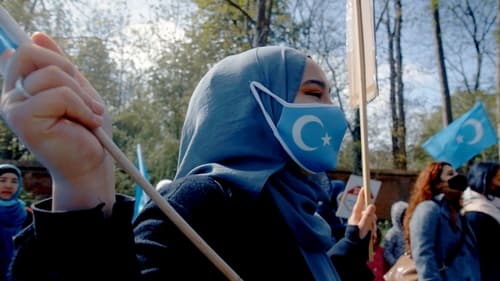
A relentless chronicle of the tragedy of the Uighurs, an ethnic minority of some eleven million people who live in the Xinjiang region of northwest China, speak a Turkic language and practice the Muslim religion. The Uighurs suffer brutal cultural and political oppression by Xin Jinping's tyrannical government: torture, disappearances, forced labor, re-education of children and adults, mass sterilizations, extensive surveillance and destruction of historical heritage.













